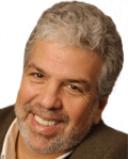
Career
Strong organizations: Combining mission with passion
Workplace teams thrive when based on character strengths AND talents.
Posted December 6, 2010
I was reminded the other day of a client I saw years ago when I was a practicing clinical psychologist. Joe was a 52-year-old partner in a successful law firm. He looked the part in his three-piece suits with French cuffs and gold cuff links. He had smartly coiffed hair and always wore shiny shoes. Joe came to see me because he was miserable following a marital separation.
I learned that Joe had always been a good student with excellent skills of critical thinking and analysis. He went into law because that was what his father did. He married, had children, and went through his paces to become a partner in an elite law firm. But, his success was hollow. Over time he became a shell of his former self and his wife described that "the Joe I fell in love with and married is no longer there... he's been gone awhile."
Over time I worked with Joe on rediscovering himself and on constructing a life that was a fuller expression of who he was.His appreciation of beauty led him into a world of travel that re-energized his marriage, and he joined the board of his local art academy to apply his notable strengths of judgment and critical thinking to improving opportunities for budding artists. He was revived, he said, "as if I had been in a long coma and now reawakened."
This case is unfortunately one of too many in which people have been encouraged to follow their talents without regard for the core character - those parts of themselves that they hold dear and that define their essence of being. This is the case that jumped forward in my mind when I was talking recently with someone about building strengths-based organizations. This requires consideration of talents in combination with character strengths. The following description was helpful to the organizational consultant, so I offer it here.
In situations other than brand new start-up companies, most consultants are working with organizations that are re-thinking their purpose and/or their implementation. It is important for an organization to have clarity of purpose and to have effective and efficient methods for carrying out its mission. Often, organizations that may have had clarity and efficiency at some point in time have drifted in those regards, or their market has changed in ways that their purpose and methods no longer are optimal. Consultants are brought in to help an organization get pointed towards success.
In approaching the fundamental issue of purpose, one looks at what one needs to be, what one wants to be, and what one can be. Need is determined by the market. Customers in any market have numerous needs, and a company needs to decide which one(s) it wants to address. In making this decision, company leaders need to think about which of the many needs they want to meet and are most competent to meet.
This often brings a company to consider "What are we best at" - i.e. core competencies. These tend to be conceived of as strengths of talent. Recently a consultant told me about a company that determined it was really good at helping people become healthy by developing fitness machines that were highly affordable and usable. With that core talent defined, the company can then go about creating a vision, mission, and strategic plan with goals and tactics defined.
Then the company needs to deploy human beings to execute the plan. And this is where strengths of character come into play.
A company wants employees who are engaged, energetic, and passionate about what they are doing, since any important business plan requires sustained human effort. If you want people to be passionate and dedicated to their work, that work must connect with who they are (character) and not only with what they can do (talent).
Consideration of individuals' signature strengths of character along with their strengths of talent can guide the division of labor to optimize employee engagement and perseverance. A character-based company becomes one in which co-workers come to appreciate each other separate from specific task performance.
A quick example: When your most creative person and your most prudent person work together - and know that's why they're working together - it can be magical.
The creative person can soar with the prudent person's blessing and patience - because prudence dictates making sure all ideas are seriously considered, not cut off at the knee because they sound impractical at first. The creative person also respects the prudent person's input - not instantly writing it off in frustration or taking it as a personal dragging-down. Their partnership becomes about the work - and these core aspects of their specific personalities are gifts to one another - not burdens.
In strengths-based teamwork, colleagues learn to value each other as human beings and become more compassionate and forgiving. Conflicts can become resolved strength-to-strength as opposed to devolving into blaming, which escalates and can become divisive during times of conflict. And, character considerations allow for the construction of teams that are not simply well-balanced in terms of necessary talents, but in ways that have the elusive "chemistry" that makes the difference between good and great. We all treasure being understood and appreciated for who we are, beyond what we can do.
So, for those who are building organizations, think of what you want to do based on what market needs exist, what you have the talent to do, and what you value most. Then when you deploy your human resources, assign tasks that touch the heart and soul of your employees through alignment with their signature strengths of character.
Take the free VIA Survey of Character at www.viacharacter.org



